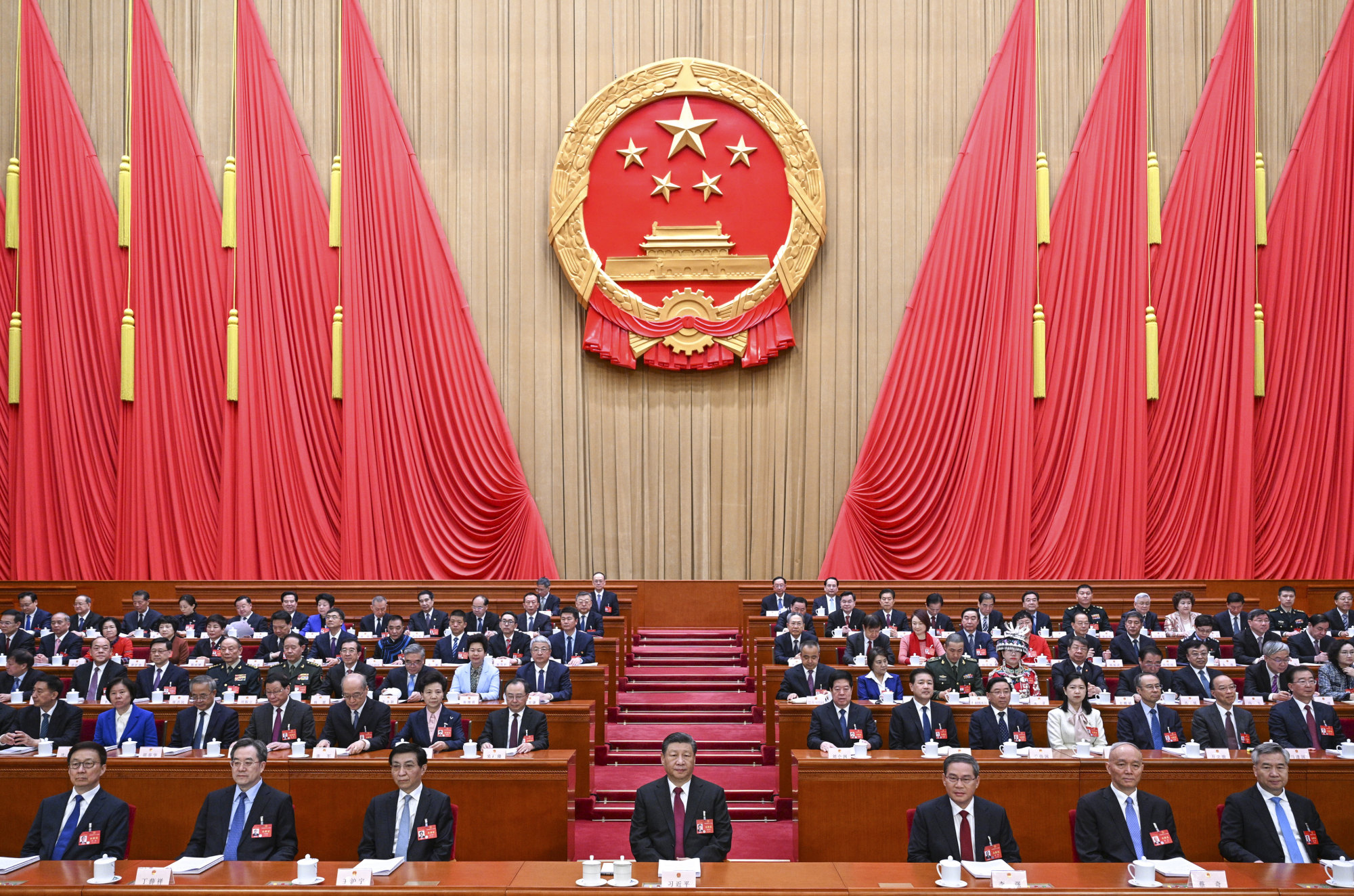Downwards pressure on China’s stocks may resume after the ongoing parliamentary meeting concludes, as state buying is set to taper off now that the key benchmark has scaled a psychologically important level, to allow market forces to operate freely, analysts say.
The national team, a term that refers to state-backed buyers, will probably slow its pace of purchases after the Shanghai Composite Index holds up above the 3,000-mark, with no surprises at the annual legislative National People’s Congress (NPC), analysts led by Chen Shujin at Jefferies wrote in a report on Tuesday.
Saxo Markets shares a similar view, saying that state buying of index-weighted companies ignored the weakness in medium and small-capitalisation stocks, a vast majority of which were in decline.
At the annual parliamentary meeting, China set a GDP growth target of around 5 per cent for 2024, in-line with market expectations but investors were concerned about the lack of drivers to boost demand and inflation, as the 3 per cent deficit target meant little room for stimulation in the fiscal policy.

“They had to do something to shore up the markets otherwise all confidence could have been lost,” said Nitin Dialdas, chief investment officer at Mandarin Capital Ventures. “Whether it has a long-term positive impact on the market performance itself we shall see, but for the short-term something has to be done. They need to find ways for the consumer to get some confidence back and not feel that they are losing income and money everywhere. It was just a stabilisation tool.”
Foreign investors end exodus as confidence improves in China’s stock market
Foreign investors end exodus as confidence improves in China’s stock market
Chen at Jefferies also warned that more listed companies are likely to adopt a strategy of “kitchen sinking” – where businesses consolidate all negative headlines and release it at one go – that may result in snowballing losses at the forthcoming earnings season.
“While the national team buying may continue to support key A-share benchmarks [of yuan shares] and their top constituent stocks throughout the remainder of the two sessions, the overall A-share market and the Hong Kong market appear poised for retracement to the downside,” said Redmond Wong, a strategist at Saxo Markets in Hong Kong. The two sessions that he was referring to were the NPC and the political advisory conference, under way in Beijing.
The Shanghai Composite Index fell 0.3 per cent to 3,039.93 on Wednesday, retreating from its highest close since November 23. The Hang Seng Index jumped 1.7 per cent, rebounding from a 2.6 per cent loss triggered by the disappointment over the lack of meaningful policies from the NPC. The gathering ends next Monday.
“Selling may intensify after the two sessions to test the resolve of the Chinese authorities to support the market,” Saxo Market’s Wong said. “Investors remain cautious due to the lack of reform and clear strategies to restore the trend growth of the Chinese economy.”

